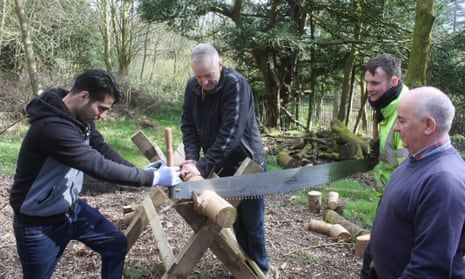University education has hardly changed in 50 years: most three-year degree courses still resemble the public boarding model, where students move away from home, that used to serve only a narrow few. Now that students are being asked to shoulder the full cost of this experience themselves, it may be time to ask whether there are more cost-effective higher education models.
The universities minister, Jo Johnson, has set the ball rolling, saying that a two-year degree course could save students a whopping £25,000 in student loans and tuition fees. Considering that for many courses, exams and essays in the first year do not count towards a final grade, it could make sense to consider cutting the length of a course down.
Yet students often say that they need time to adjust to the leap from A-levels to university – indeed, universities continue to see a high level of dropouts in the first year, mostly due to stress, mental health and anxiety. Many undergraduates see their first year as a chance to live away from home, pick up life skills and meet new people.
But are there more effective ways of ensuring young people get these experiences? Instead of spending a year away from home at great expense, what could students do in their home towns that would be of equal value in terms of personal development? A year of full-time volunteering might be the answer.
In the US, for example, the government-run Americorps programme allows 18-year-olds to sign up for a year of full-time civilian service, with a range of volunteering programmes to choose from. Every year, 80,000 young people take part, with participants receiving a living allowance and a grant towards their university education if they go on to study. The scheme sees a significant return on investment ($4 for every $1 invested), and Americorps graduates are highly sought after by recruiters.
There are already similar schemes in the UK, such as those run by Volunteering Matters or City Year UK. Evaluations [pdf] show that these schemes significantly benefit young people’s career prospects, which is backed up by findings from other countries. In the UK, there are at least 1,000 young people a year who currently volunteer full time, a comparable number to the 2,500 students who are doing two-year degrees.
Research by Generation Change shows that a year of full-time volunteering could cost as little as £12,000 per person in stipends and expenses; less than half of the cost of a first year at university when average living costs are factored in. This means that full-time volunteering could be an attractive option for young people who want to take a shorter degree course, offering a gap year at home as a cheaper, more rewarding way of getting that valuable life experience.
Earlier this year, the government launched an independent review into how to better support full-time volunteering in the UK, with the report expected to be published next week. The universities minister should take the findings very seriously. The review could lay the foundation for a bold, innovative new form of volunteering gap year that leads on to university.
The government already has the means to offer this through the National Citizen Service. Set up under former prime minister David Cameron, the flagship scheme is currently only available for 16-year-olds – but there is provision in the organisation’s royal charter to support anyone up to the age of 25 to take part in voluntary citizen service. The highly recognised NCS brand could easily be extended to full-time volunteering models, similar to those in the US, France and Germany.
Existing NCS programmes deliver much of what you experience in your first year of a degree, with residential learning, social mixing and life skills development over a three-week period. This leads to NCS participants being 12% more likely [pdf] to go on to university – and this percentage is even higher for those from the poorest backgrounds. Expanding this sort of offer could become a cost-effective way of making shorter degrees more viable.
Join the higher education network for more comment, analysis and job opportunities, direct to your inbox. Follow us on Twitter @gdnhighered. And if you have an idea for a story, please read our guidelines and email your pitch to us at highereducationnetwork@theguardian.com
Looking for a higher education job? Or perhaps you need to recruit university staff? Take a look at Guardian Jobs, the higher education specialist
